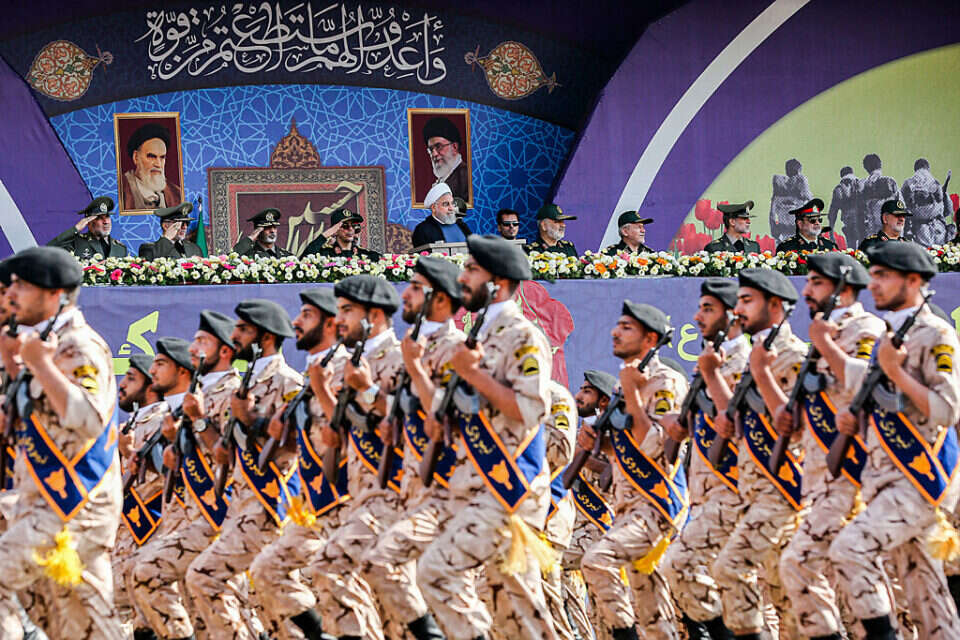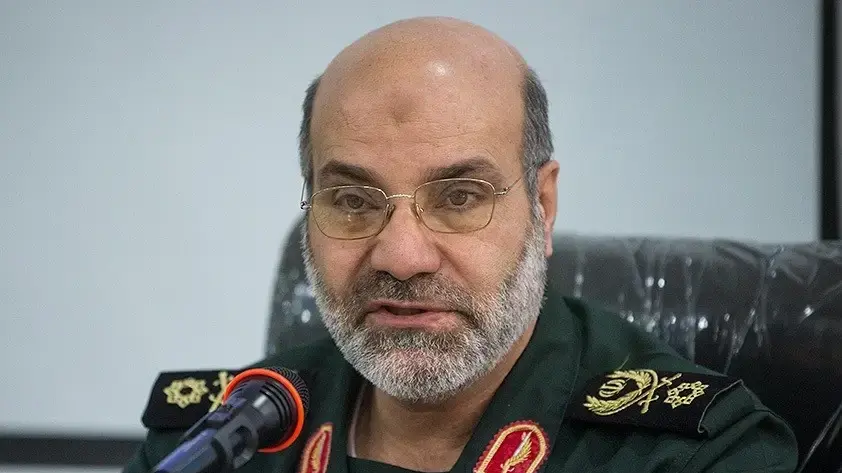On the morning of October 11, 1993, Norwegian publisher Wilhelm Nigard left his home in the northwestern neighborhood of Oslo and was about to drive to his offices. As soon as he got out of the parking lot, Nigard felt that one of the wheels in the car was not working properly. He stopped the car and went over to see what the problem was. Without noticing it, an oriental-looking anonymous man approached, his head covered in a hoodie, and fired three bullets at him in a fairly short range with his back. A professional assassin put an end to Nigard's life under these conditions. But, the publisher managed to survive, despite his severe injury, the assassination attempt. Did the shooter not prepare well for the mission to which he was sent? Or was the assassination attempt meant to be just a warning in the first place? 28 years after the incident, which at the time severely shook Norwegian public opinion, Norwegian police investigators still have no definite answers to these and many other questions surrounding this assassination attempt. At one point it was decided to close the investigation file due to the lack of any evidence. In recent days, however, a breakthrough seems to have been achieved:Norwegian media report two suspects in the assassination attempt: a Lebanese man who is a cousin of Abbas Mousavi - secretary general of the Lebanese terrorist organization Hezbollah, which was assassinated by the IDF in 1992, and an Iranian diplomat - whose identity has not yet been revealed. Nearly three decades after the assassination attempt on one of the cornerstones of the Norwegian literary world, the Norwegian authorities are ready to confront - at last - the entity that was behind almost any doubt behind the terrorist act: the ayatollahs' regime in Tehran.
The background to the affair is the publication of the book by the British author of Indian descent, Salman Rushdie, "The Devil's Verses". The book, which is critical of Islam and other religions, was published in 1988 and provoked violent demonstrations in the Muslim world. It was confiscated, banned from distribution and printing and burned. Its author is accused of heresy. On February 14, 1989, the first spiritual leader of the Islamic Republic of Iran, Ayatollah Ruhallah Khomeini, issued a fatu instructing all Muslims to assassinate Rushdie and anyone else involved in the publication of the book. In any language. Khomeini also offered a $ 3 million reward to those who executed Rushdie, a prize that was later raised to $ 6 million. The president of Iran at the time, Ali Khamenei - now the spiritual leader of Iran, declared that if Rushdie apologized, he would be pardoned. In coordination with the Iranian Foreign Ministry, Rushdie issued a statement apologizing profusely for publishing the book. However, the next day Khomeini announced that even if Rushdie became the most devout Muslim in the world, every Muslim must be sent to hell.Rushdie was forced to live for years in hiding and under heavy police security.
Apologized but forced to live in hiding, Salman Rushdie, Photo: Dan Keenan
On July 3, 1991, the Italian translator of the book, Ettore Capriolo, was stabbed at his home in Milan, and was seriously injured. Ten days later, the body of the book's Japanese translator, Hitoshi Igarshi, who was stabbed to death, was found on a university campus in Tokyo. On July 2, 1993, an angry mob attacked a hotel in the Turkish city of Sivas, where the Turkish translator of the "Devil's Verses" was staying, Aziz Nissim. The rioters set the hotel on fire. Thirty-seven people, including academics, poets and musicians who attended a cultural conference, were found dead in the attack. Nissim escaped death because the violent mob could not identify him. Then it was the turn of Wilhelm Nigaard, the Norwegian-language publisher of Devil's Verses. Nigaard, now 78, is from a well-known Norwegian publishing family. Between 1987 and 1990 he served as chairman of the Norwegian Publishers' Association. Since 2010 he has served as chairman of the Norwegian Broadcasting Authority and also as a member of the Norwegian Academy of Languages and Literature. The assassin, most likely sent by the Iranian regime, was therefore supposed to eliminate a well-known public figure.Despite this, the investigation into the assassination has not been completed to date.
Weeks after the shooting, Oslo police investigators did not receive any information that could have helped identify the assassin. The researchers groped in complete darkness. On the face of it, it was clear to everyone what the motive for the attempted murder was, but there was no evidence that could substantiate any charge. Intelligence information, which had earlier come from German and Swedish security services about the Hezbollah organization's intention to establish an operational arm in the Scandinavian countries, including Norway, did not advance the investigation. Nor is the surveillance that Norwegian Homeland Security services have begun to carry out following this information about the main Shiite mosque in Oslo and the Iranian embassy in the city. Five weeks after the Benigard shooting, a 17-year-old young woman arrived in Oslo police who worked for one of the families living in the Neighborhood and provided the first evidence. The young woman said she heard the three shots and saw from the window the shooter fleeing the scene of the incident. She was so frightened by the class that she said nothing to the policemen who came to the place, and the next day she resigned from her job and returned to her family, who live in the village. The young woman provided the police with a description,That a painted profile of the shooter can be assembled. The profile was published in the Norwegian media, and then the investigators were flooded with identification inquiries. One of them led to a young Lebanese Shiite, Khaled Mousavi, who emigrated to Norway in 1989 and lived in Oslo at the time of the Benigard shooting. Mousavi was questioned, his home was searched extensively, but Oslo police did not find any evidence linking him to the murder. However, he remained on the local authorities' radar, and three years later was deported along with his wife and son, after it was revealed that he had smuggled his wife to Norway with a passport not hers.After it became clear that he had smuggled his wife to Norway with a passport not hers.After it became clear that he had smuggled his wife to Norway with a passport not hers.
Nawaf Mousavi, a relative of the suspect and a member of the Lebanese parliament on behalf of Hezbollah,
A year and a half after the assassination attempt, the investigation reached a dead end. In 2007, 14 years after the Benigard shooting, the investigation file was closed without any official announcement. A year later, one of the Norwegian television stations broadcast an investigation into the affair and revealed the closure of the investigation. Following the broadcast, the Attorney General decided to resume the investigation and hand it over from the Oslo Police to the Norwegian Criminal Police. Six of the best investigators in the Norwegian police received the case, went through all the evidence, testimonies and investigations, reached the Lebanese Valley in 2012 - where Khaled Mousavi lived at the time, conducted another investigation, but failed to establish a definite indictment. Three years ago, the prosecution and the police announced an indictment against two unknown individuals for committing the murder and complicity in the commission of the murder. The non-publication of the names of the defendants was explained as a desire not to harm the ongoing investigation. Mousavi's name has now been revealed as a suspect in the murder. The identity of the Iranian diplomat is still confidential, although it is known that he served as First Secretary at the Iranian Embassy in Oslo,He arrived in Norway shortly after the publication of The Devil's Verses and left the country four days before the assassination attempt.
A reporter for the Norwegian Broadcasting Authority, NRK, managed to locate Mousavi in Beirut and extract from him a sweeping denial of his involvement in the attempted murder. Mousavi is not only a relative of Abbas Mousavi but also of Nawaf Mousavi, a Hezbollah spokesman in the Lebanese parliament and head of the terrorist organization's foreign relations division. "It is not my fault that my relatives hold senior positions in Hezbollah," Mousavi, 56, told the Norwegian correspondent, denying any involvement - political, social or religious. "I have a hard time supporting my family," he added. They even refused to hire me as a security guard at a Hezbollah hospital. ' According to him, he is currently employed as a security guard at the port of Beirut, which is under almost exclusive control of Hezbollah. Some of the evidence, which strengthens the suspicions against him, was his frequent visits to the Shiite mosque of Oslo, which is considered a center of Iranian activity, and to the Iranian embassy in the Norwegian capital. Mousavi claims that he went to the mosque as a regular believer and came to the embassy only to attend the celebration of Muslim holidays.'There was a pleasant atmosphere, where Lebanese, Pakistanis and Iranians met. But, there was no political activity at the embassy, "Mousavi claims," we drank tea, ate and read from the Koran. The ambassador was a nice man with a broad religious education. ' According to Mousavi, he did not know at all about the attempted assassination of Nigard, or who the man was, since his limited knowledge of Norwegian did not allow him to follow the news. The ignorance of the Norwegian also prevented him from finding work. For a time he was a postman, then worked in cafes and restaurants, but during most of his six years in Norway - until the deportation, was dependent on social assistance from the state.The ignorance of the Norwegian also prevented him from finding work. For a time he was a postman, then worked in cafes and restaurants, but during most of his six years in Norway - until the deportation, was dependent on social assistance from the state.The ignorance of the Norwegian also prevented him from finding work. For a time he was a postman, then worked in cafes and restaurants, but during most of his six years in Norway - until the deportation, was dependent on social assistance from the state.
Survived the Assassination, Writer Wilhelm Nigaard,
The strongest evidence against Mousavi is related to his movements in the days before the Benigard shooting: Norwegian police investigators revealed that two days before the murder he returned to Oslo by ferry from the German city of Kiel, from the port did not return home but visited a Lebanese friend who worked as a driver. Benigard.
During his interrogation, Mousavi became involved in lies, and when he learned that the Norwegian police knew exactly what he had done in the days before the shooting incident, he became aggressive.
He later explained his aggression, fearing that the Norwegian authorities would overdo it, that he smuggled his wife into the country with a fake passport.
Allegedly, Mousavi will be able to claim that all the evidence against him is coincidence.
But in his case, there are too many such combinations.
The new revelations about the attempted assassination of Nigard join other news of a rather ramified Iranian espionage activity in Scandinavian countries: In 2018, Swedish authorities arrested an Iranian, Muhammad Davidzada Lulu, accused of working for the Iranian Ministry of Intelligence (MOIS) and involvement in anti-Arab-Iranian activities. Loloy came to Norway as a refugee and received Norwegian citizenship. He was in close contact with the Iranian embassy in Oslo. The Norwegian media published a photo of him at an event held by the Iranian embassy on the occasion of the new Muslim year 1397. In the photo, Lulu is seen sitting in the front row of the guests alongside the Iranian ambassador, Norwegian Fisheries Minister Per Sanderberg and a young Norwegian-Iranian businesswoman accused by the Iranian opposition. Iranian intelligence. Lulu was sentenced in Denmark to seven years in prison for his part in a failed attempt to assassinate an Arab-Iranian opposition leader. Minister Sandberg was forced to resign,After it became clear that he was going on holiday in Iran in complete violation of all the protocol rules customary in the Norwegian government, he provided false information about his conduct on that trip and did positive public relations for the Iranian regime.
Two months ago, leading newspapers in Sweden reported the arrest of one of the former senior local police officers, an Iranian immigrant who had been granted Swedish citizenship, for spying on Iran.
The man, Peiman Kia, who served as commander of the Swedish security police and was also active in a Swedish military organization, is accused of spying for the Iranians between 2011-2015.
Shortly before, the Swedes arrested a pair of Iranian spies, who had arrived in Sweden impersonating refugees from Afghanistan.
From all these cases, it appears that the Iranian regime has for years exploited the weaknesses of the refugee policy of European countries in order to establish a broad network of espionage and terrorism in them.
And the Europeans continue to woo the Iranian regime, as if nothing is happening.










/cloudfront-eu-central-1.images.arcpublishing.com/prisa/KMEYMJKESBAZBE4MRBAM4TGHIQ.jpg)



